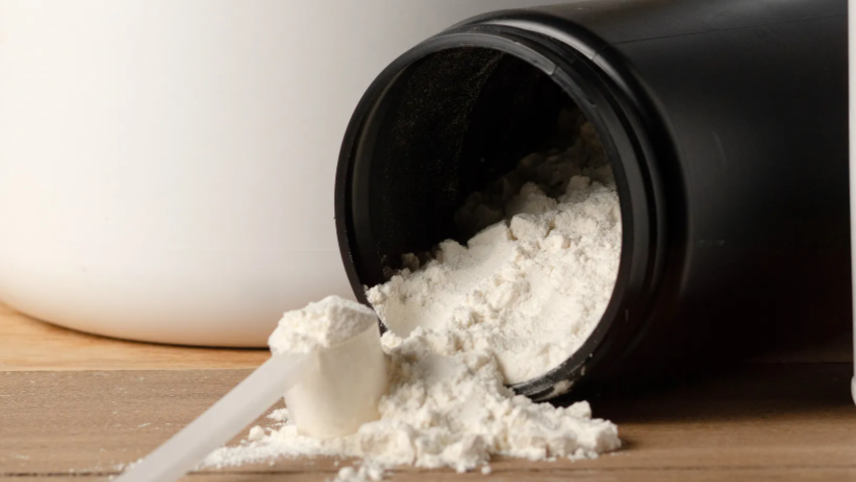
Creatine: A Smart Supplement for Staying Strong and Energized After 50
Share
As we age, maintaining strength, energy, and mental sharpness becomes increasingly important. Many people think of creatine as a supplement for bodybuilders or elite athletes, but research now shows it can offer real benefits for adults over 50. From supporting muscle health to boosting brain function, creatine may be one of the simplest tools to help maintain vitality as we get older.
What Is Creatine?
Creatine is a natural compound found in muscle cells, produced by the body from amino acids, and also obtained through foods like meat and fish. In younger years, the body produces enough creatine to support energy production and muscle function. However, as we age, natural creatine levels can decline. Adults over 50, particularly those on vegetarian or plant-based diets, may not get enough through food alone.
Supplementing with creatine increases the amount stored in muscles and other tissues. This extra creatine helps produce adenosine triphosphate (ATP), the body’s main energy source. In simple terms, creatine fuels both movement and overall vitality.
Muscle Health and Strength After 50
One of the most compelling reasons to consider creatine is its effect on muscle health. Sarcopenia—the age-related loss of muscle mass and strength—can make everyday activities harder and increase the risk of falls.

Resistance training such as kettlebells, light weights, or yoga is key to combating sarcopenia. Studies show that combining resistance training with creatine supplementation can improve strength, power, and endurance more than exercise alone. Even simple exercises like chair squats, wall push-ups, or kettlebell swings may feel easier and more effective with creatine.
For adults over 50, this translates to maintaining independence, staying active, and enjoying a higher quality of life. Check out our kettlebell training guide for exercises that pair well with creatine.
Brain Health and Mental Sharpness
Creatine’s benefits extend beyond muscles. The brain is energy-hungry, and ATP is essential for neurons as much as for muscles. Research suggests creatine may help improve memory, focus, and mental clarity, especially in those experiencing sleep deprivation or consuming low-creatine diets.
While creatine is not a cure for cognitive decline, it may provide a meaningful boost to brain energy, helping you think more clearly and stay sharp as you age. For tips on supporting your mind and body together, see our holistic wellness guide.
Boosting Everyday Energy
Do you often feel fatigued during the day? Creatine may help. By enhancing ATP production, creatine improves energy availability, reducing tiredness and helping you maintain stamina for daily activities—whether climbing stairs, gardening, or enjoying a long walk.
Maintaining energy and vitality is key for staying active and enjoying life after 50.
Safety and Considerations for Older Adults
Creatine is one of the most researched supplements in the world and is generally safe for healthy adults, including those over 50. That said, consult your doctor before starting any new supplement, especially if you have kidney issues, diabetes, or other chronic conditions.
Some people experience mild digestive discomfort, which can be minimized by starting with a small dose and drinking plenty of water.
How to Incorporate Creatine Into Your Routine
Creatine supplements come in powders, capsules, and even gummies. The most studied and effective form is creatine monohydrate. A daily dose of 3–5 grams is typical and can be mixed with water, juice, or added to a smoothie.
Supplements work best when paired with a healthy diet and regular exercise. Adequate protein intake, resistance training, and proper sleep all support muscle and brain health. Think of creatine as a supplement that enhances the benefits of your existing lifestyle.
Creatine as Part of a Healthy Ageing Strategy
For adults over 50, staying active and mentally sharp is essential. Creatine can play a role in a comprehensive healthy ageing approach. Alongside resistance training, a balanced diet, and stress management, it helps maintain strength, energy, and cognitive function.
Start small, monitor your body’s response, and consult your healthcare provider to ensure creatine is appropriate for you.
Conclusion
Creatine isn’t just for young athletes—it’s a safe and effective supplement that supports strength, energy, and brain function in adults over 50. By helping preserve muscle mass, boost mental clarity, and enhance everyday energy, creatine can be a valuable tool for maintaining independence and quality of life.
Combined with a balanced lifestyle, creatine may be just the boost you need to feel stronger, sharper, and more vibrant as you age
Frequently Asked Questions About Creatine for Adults Over 50
1. Is creatine safe for people over 50?
Yes! Creatine is one of the most studied supplements and is generally safe for healthy adults, including those over 50. Always check with your doctor first, especially if you have kidney issues or other chronic health conditions.
2. How does creatine help older adults?
Creatine supports muscle strength, energy production, and cognitive function. It can help combat age-related muscle loss (sarcopenia), improve stamina for daily activities, and provide a mild boost to memory and focus.
3. How much creatine should I take?
A common dose is 3–5 grams per day. Start small to assess tolerance, and mix it with water, juice, or a smoothie.
4. Do I need to exercise while taking creatine?
Yes! Creatine works best when combined with resistance exercises, such as kettlebells, light weights, or bodyweight exercises. This combination helps preserve muscle mass and improve overall strength.
5. Can vegetarians benefit from creatine?
Absolutely. Creatine is naturally found in meat and fish, so vegetarians may have lower stores and benefit even more from supplementation.